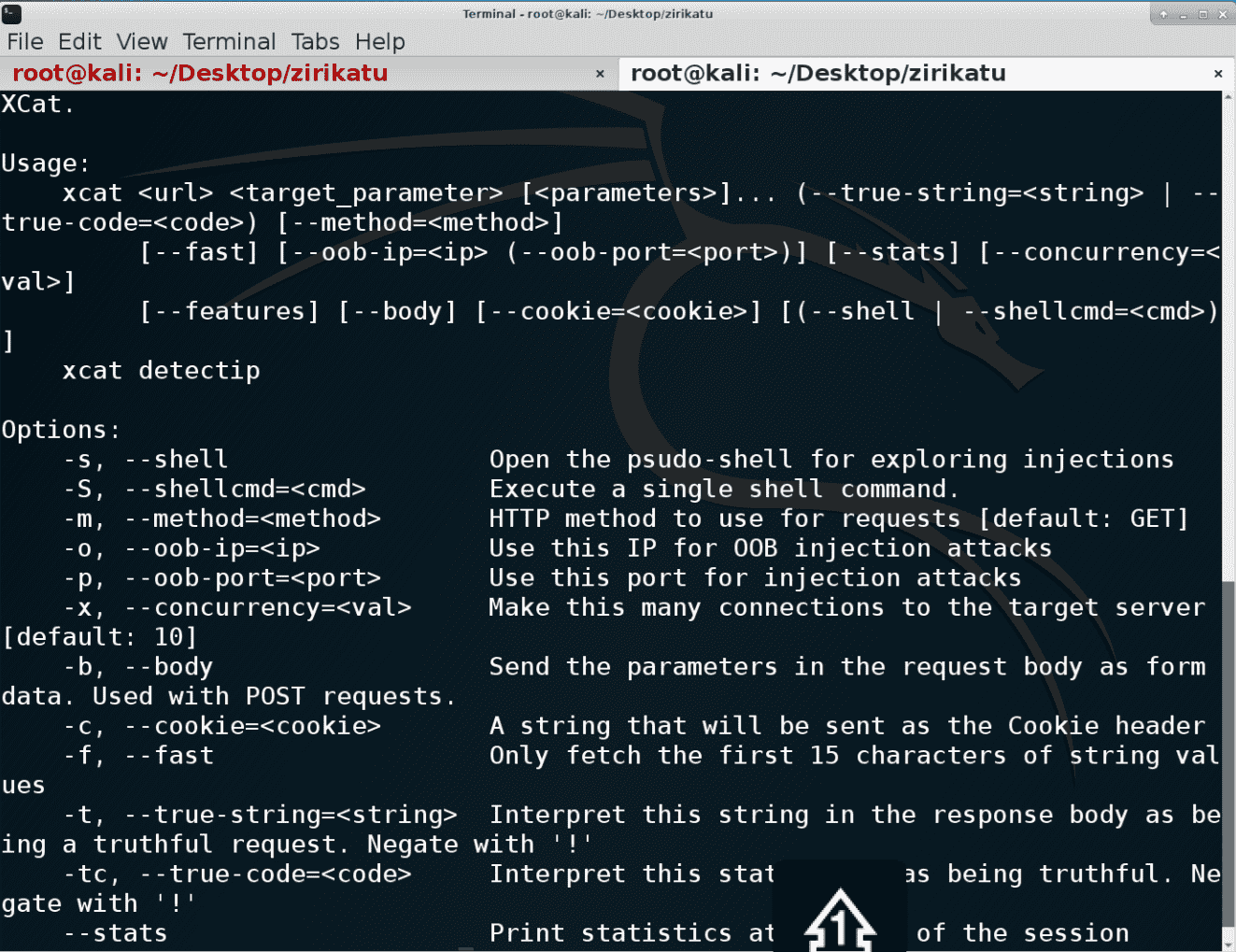xcat v1.1 releases: exploit and investigate blind XPath injection vulnerabilities

XCat
XCat is a command-line tool to exploit and investigate blind XPath injection vulnerabilities.
It supports a large number of features:
- Auto-selects injections (run xcat injections for a list)
- Detects the version and capabilities of the xpath parser and selects the fastest method of retrieval
- Built-in out-of-bound HTTP server
- Automates XXE attacks
- Can use OOB HTTP requests to drastically speed up retrieval
- Custom request headers and body
- Built-in REPL shell, supporting:
- Reading arbitrary files
- Reading environment variables
- Listing directories
- Uploading/downloading files (soon TM)
How it works
There are two concepts that are integral to how xcat works: The injection and the features.
Injections
When xcat runs it attempts to find a suitable injection. This is a small snippet we can wrap arbitrary expressions inside to evaluate if they are true or false. You can find a full list of supported injections by running xcat injections. Defining a new injection can be done by adding an entry to the injectors list inside injections.py.
Features
Once we have the boolean injection primitive xcat can exploit it in a variety of ways. The simplest way of extracting text from an XML document is brute-forcing: checking each character one by one against an alphabet. However this is really slow, and so xcat attempts to speed this up by detecting what features are supported by the application. xcat then takes these features and uses the optimal ones to speed up retrieval.
Features are defined in features.py and can be modified by adding a new Feature instance with a name and an XPath expression to test if it is available.
An example of such a feature is codepoint-search, defined like so:
Feature('codepoint-search', [string_to_codepoints("test")[1] == 116])
After an injection has been found, but before an attack is commenced, xcat will execute this expression:
string-to-codepoints(‘test’)=116. If it is true then it is considered available.
This feature speeds up retrieval by allowing us to binary search the string codepoint (see binary_search in algorithms.py) rather than brute forcing it.
There are a variety of other features that can speed up the retrieval, and some may cause a slightly different output to be retrieved.
For a full rundown of how the features are used then see the algorithms.py file.
XPath expressions in Python
XPath expressions are created and composed in pure Python using the xpath-expressions library
Install:
Requirement: python 3.7
pip3 install xcat
Usage
Tutorial
Copyright (c) 2014 Thomas Forbes
Source: https://github.com/orf/





